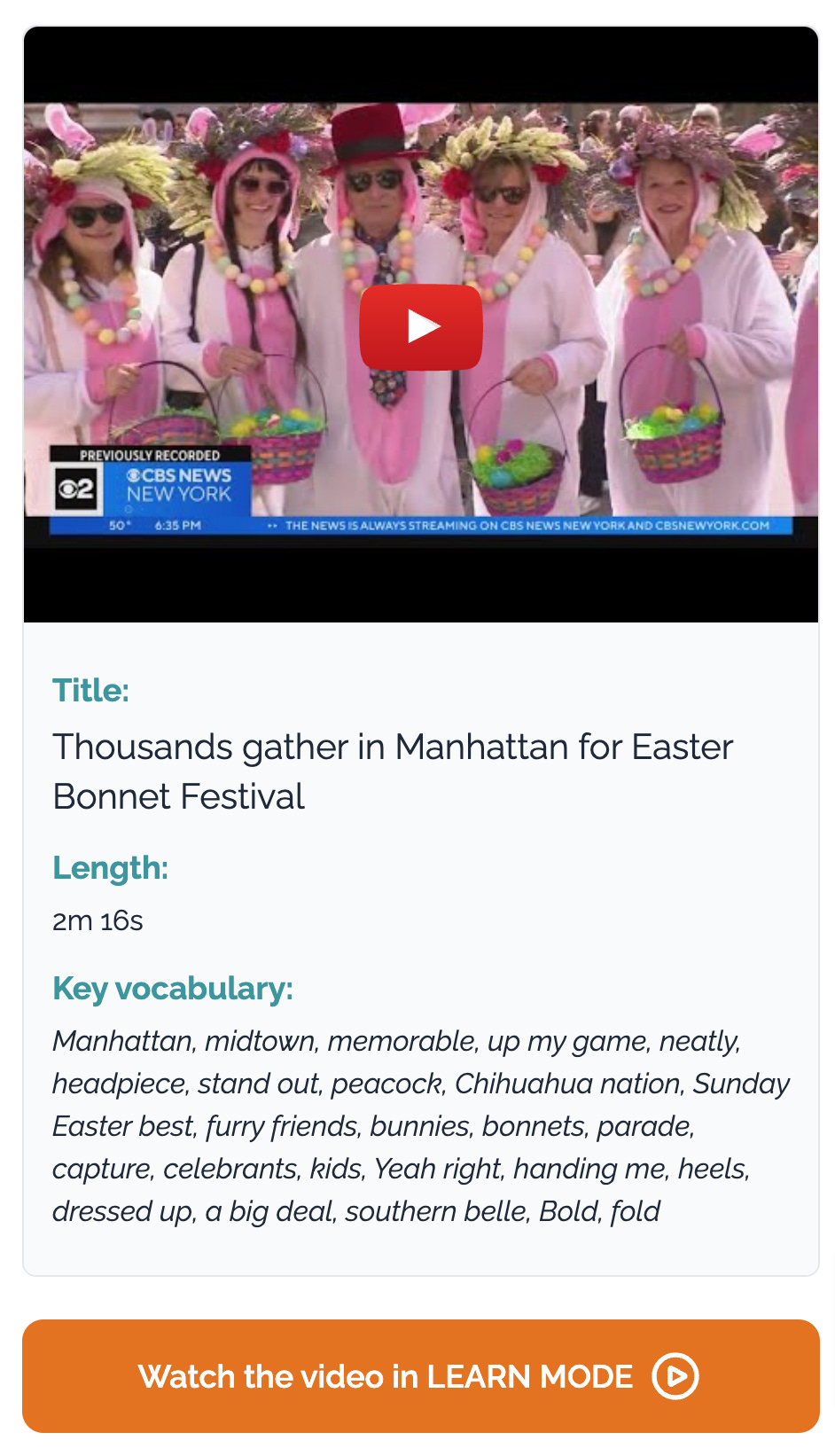Do you celebrate Nowruz, Holi, Songkran or Easter?
In this post, we look at springtime traditions around the world and some expressions to explain how hard you have been working.
Hello, I’m Mandeep. Welcome to my Watch and Learn English substack. My aim is to teach “real-life” English using videos and topics that are in the news.
Video of the week
The seasons are changing and people are partying! At this time of year, there are many festivals taking place around the globe. Here’s a quick review. Do you celebrate any of these?
Use the translate option if there is a word or phrase that you do not understand.
Nowruz means No (new) and rouz (day). It’s the first day of the first month of the Iranian calendar and this “new day” symbolises new life. This year, it fell on March 20th and was celebrated in many different countries with fun and food. In some homes, families come together over a table that has seven lucky items that represent spring and begin with the letter sin (s) in Persia. [Translate]
Holi, the festival of colours, love and spring, takes place in Northern India on March 25th. Wear white clothes and get your packets of coloured powder ready! [Translate]
The Songkran Water Festival marks the Thai New Year and comes from a Sanskrit word meaning ‘astrological passage’. This year it takes place on April 13th. It’s traditional to visit family and the local temple on this day. Take a water pistol and an umbrella if you want to stay dry! [Translate]
Easter is a Christian holiday that celebrates the resurrection of Jesus Christ. This year it falls on Sunday March 31st. The holiday is associated with springtime and new beginnings so celebrations are usually themed around eggs and newborn animals like chicks and rabbits. [Translate]

Easter is the main holiday in English-speaking countries at this time of year. For that reason, our video for the week is a news report on the traditional Easter parade that takes place in New York every year.
Do you know what a ‘bonnet’ means in English? Watch and find out!
First Watch: Learning
Click the image below to watch the video with clear, correct captions (not auto-generated), definitions for the key vocabulary, and an option to slow the video down to help you catch every word.
We have subscribers in 59 different countries! Please share any traditional parties you are celebrating in your country over the next month in the comments below!
Have you been working hard? Phrases to describe your effort
A lot of love went into those Easter bonnets! Everyone worked really hard.
In today’s language point, we look at some of the phrases used to describe how much time and effort was needed to make those very special hats.
Note: moving from intermediate to advanced doesn’t just mean learning more vocabulary and grammar. It’s also learning how to use what you already know in different ways: making new phrases or expressions with familiar words.
Let’s take a look at some phrases inspired by the hard workers in the video:
1 - To spend + (time)
e.g. “I spent two months completing the task”.
Here’s an example from the video:
Some people spent months preparing their designs
2 - To take + (time) to put together
e.g. “It took two months to put that project together”.
Here’s an example from the video:
It took a while to put together because the flowers took a while to fold
3 - To put + (time) of work into
e.g. “I put two months of work into completing the task.”
Here’s an example from the video:
Some people put days of work into making their costumes themselves
4 - To spend + (time) at a time
e.g. “I could spend days at a time trying to make it perfect.“
Spending hours at a time to create a memorable work of art
Here are some other verbs to use instead of ’spend’ when you’re talking about time:
1. I dedicated time to...
2. I invested time in …
3. I committed time to ...
4. I devoted time to...
Second Watch: Testing
Now you can watch the news report again but in “quiz” mode!
As you watch, you need to choose the correct word to make the sentence. This will test how well you remember the key vocabulary from the video.
We’re away next week for our own Easter fun. See you in two weeks!
Coming soon!
Our “Learn English with Wednesday” course is nearly ready. Coming soon, we’ll give you the chance to download a free sample!
Say hello
Please let me know what you think of my post. Your feedback is appreciated.
Loved it | Great | OK | Meh | Bad
Also, please come and say hello to everybody in the comments. What do you think about the video?








